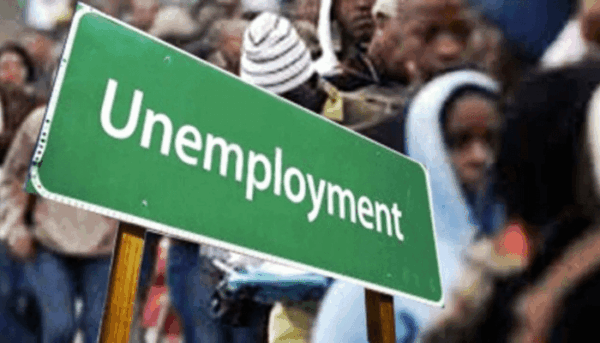Forgotten Dairies
The Challenge of Unemployment Among Jobless Youths in Nigeria -By Beatrice Marcel Zamdai
The challenge of unemployment among jobless youths in Nigeria is a complex issue that requires urgent and collective action. Government, private sector, educational institutions, and civil society must work together to create sustainable job opportunities and empower young people with the skills and resources they need to thrive. Tackling unemployment is not just about reducing poverty but about securing Nigeria’s future. A nation that fails to harness the potential of its youth risks stagnation and instability, but one that invests in them secures prosperity and progress for generations to come.

Unemployment remains one of the most pressing socio-economic challenges confronting Nigeria today, particularly among the youth. Despite being blessed with abundant natural and human resources, the country continues to struggle with creating adequate job opportunities for its growing population. The youth, who form the backbone of Nigeria’s labor force, are the most affected by this persistent crisis. Every year, thousands of graduates are produced by universities, polytechnics, and other tertiary institutions, yet only a small fraction secure gainful employment. This has created a disturbing reality where many Nigerian youths are jobless, underemployed, or engaged in precarious informal activities.
The problem of youth unemployment in Nigeria is deeply rooted in the country’s economic structure. The economy is heavily dependent on oil revenue, leaving other productive sectors such as agriculture, manufacturing, and technology underdeveloped. This overdependence limits job creation and makes the economy vulnerable to external shocks such as fluctuations in oil prices. Consequently, the available job opportunities are insufficient to absorb the teeming population of young graduates entering the labor market every year.
Another major factor contributing to unemployment among Nigerian youths is the mismatch between education and employment. The Nigerian education system focuses heavily on theoretical knowledge rather than practical and technical skills that are relevant in today’s labor market. Many graduates lack the necessary competencies and hands-on experience required by employers. As a result, while job vacancies exist in some sectors, many Nigerian youths remain unemployable due to a lack of appropriate skills.
Corruption and poor governance have also worsened the unemployment crisis. Resources meant for industrial development, entrepreneurship programs, and job creation are often mismanaged or embezzled. Nepotism and favoritism in recruitment processes further reduce opportunities for qualified young people. In many cases, employment in both public and private sectors is influenced by connections rather than merit, leaving competent but less privileged youths sidelined.
Rapid population growth in Nigeria has also intensified the unemployment problem. The country’s population, currently over 200 million, continues to rise without a corresponding expansion in the economy or infrastructure. As the youth population increases, competition for limited job opportunities becomes stiffer. This has led to frustration and hopelessness among many young Nigerians who are willing to work but cannot find employment.
The consequences of youth unemployment in Nigeria are far-reaching. Joblessness has led to a rise in poverty levels, social inequality, and economic dependence. Many young people, unable to sustain themselves or their families, fall into depression and despair. The sense of helplessness that comes with prolonged unemployment erodes self-esteem and discourages innovation and hard work.
One of the most visible effects of youth unemployment in Nigeria is the increase in crime and social vices. Idle youths often resort to illegal activities such as internet fraud, armed robbery, drug trafficking, and prostitution as a means of survival. The rise in cybercrime, popularly known as “Yahoo Yahoo,” is a reflection of a generation struggling to find legitimate means of livelihood. This situation not only undermines Nigeria’s image internationally but also weakens social cohesion and security within the country.
Unemployment has also fueled political instability and youth restiveness in Nigeria. Disillusioned young people are easily manipulated by politicians who exploit their frustration for selfish ends. Many unemployed youths are recruited as political thugs during elections, while others join militant groups or engage in violent protests to express their anger against the system. This has contributed to insecurity and disrupted peace and development across various regions.
In response to this challenge, successive Nigerian governments have introduced several programs and initiatives aimed at tackling youth unemployment. Schemes such as the National Directorate of Employment (NDE), the Youth Enterprise with Innovation in Nigeria (YouWiN), N-Power, and various skill acquisition programs have been launched over the years. However, the impact of these initiatives has been limited due to poor implementation, lack of continuity, and inadequate funding.
Private sector participation and entrepreneurship are crucial in addressing the problem of youth unemployment. Encouraging young people to create their own businesses rather than depend solely on government jobs can transform the economy. Access to finance, mentorship, and business-friendly policies are essential to promote innovation and enterprise development among Nigerian youths. The growth of small and medium-sized enterprises (SMEs) has the potential to absorb a significant number of unemployed young people if properly supported.
Education reform is equally vital. The Nigerian education system must be restructured to emphasize technical and vocational training, digital literacy, and entrepreneurship. Schools should partner with industries to provide students with practical experience and ensure that graduates possess relevant skills for the modern economy. Encouraging STEM (Science, Technology, Engineering, and Mathematics) education can also open up new job opportunities in emerging sectors like information technology, renewable energy, and digital services.
The challenge of unemployment among jobless youths in Nigeria is a complex issue that requires urgent and collective action. Government, private sector, educational institutions, and civil society must work together to create sustainable job opportunities and empower young people with the skills and resources they need to thrive. Tackling unemployment is not just about reducing poverty but about securing Nigeria’s future. A nation that fails to harness the potential of its youth risks stagnation and instability, but one that invests in them secures prosperity and progress for generations to come.
Beatrice Marcel Zamdai Department of mass communication Kashim Ibrahim University, Maiduguri

























